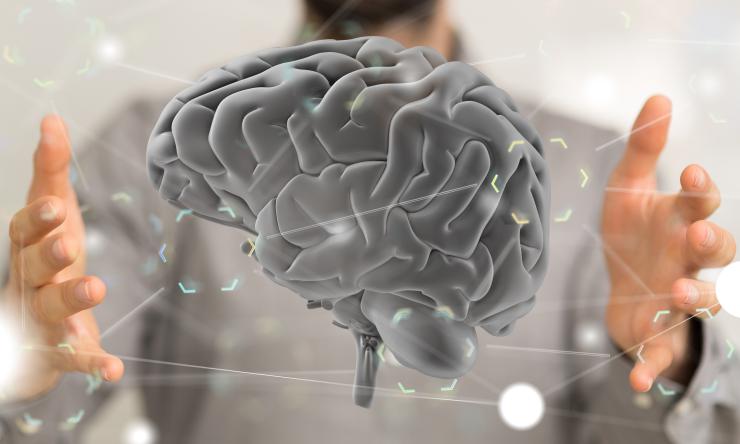Baylor Researchers highlight benefits of sharing human brain data
In recent years, the scientific community has seen a push for more findable, accessible, interoperable, and reusable (FAIR) neurophysiology data sharing. While certain measures have been put in place by institutions such as the National Institute of Health (NIH) to promote more FAIR data sharing, some researchers remain hesitant and unwilling to share their data beyond minimum requirements due to multiple disincentives.
In a new Neuron article, a team of researchers, led by coauthors Dr. Vasiliki Rahimzadeh, assistant professor at the Center for Medical Ethics and Health Policy at Baylor College of Medicine, and Dr. Kathryn Maxson Jones, assistant professor of history of technology at Purdue University and formerly a Senior Research Assistant in the Center for Medical Ethics and Health Policy at Baylor during the time of the study, profile three successful instances of data sharing from the NIH BRAIN Initiative Research Opportunities in Humans (ROH) Consortium to highlight the benefits of FAIR data sharing.
“This group is focused on how to maximize the scientific utility of human neuronal data through broad and secure data sharing,” explains Rahimzadeh. “While there has been a lot of attention paid to scientific benefits of data sharing, such as researchers being able to learn from others and expand their own work, far less has been paid to the professional and other social benefits. These value propositions are important for incentivizing researchers to share data more often beyond what is required as a condition of their funding.”
The paper showcases examples of successful data sharing from research groups at the University of Pennsylvania, Cedars-Sinai Medical Center, and Harvard Medical School and Massachusetts General Hospital involving intracranial electrophysiology data from patients. When shared, the data in question was de-identified to protect patient privacy, reformatted into standardized file types and uploaded to institutional or NIH archival databases, where it has been and is being reused for new research, education, training and tool development opportunities.
"There is little disagreement that careful and thoughtful sharing of data increases its impact. But for data sharing to become routine and frequent, the research community must feel incentivized to share data in a maximally useful way rather than doing the minimum required to meet criteria from funders such as the NIH," said Dr. Sameer Sheth, professor of neurosurgery, a McNair Scholar at Baylor and author on the paper. "In this article, we present examples of tangible benefit to investigators who shared data, paying particular attention to human intracranial neural data. These examples are meant to encourage the research community to find similar win-win situations that benefit themselves while also enabling others to advance discovery using these precious data."
Rahimzadeh said that by sharing data, the research groups discussed in the paper were able to not only open new doors for collaboration with other groups, but to also support replicability studies that overall enhance scientific rigor.
“The benefits to users include expanding both the diversity and volume of datasets available for research and being able to combine multiple datasets together to find new associations or conduct subgroup analyses that previously might have been infeasible,” she said. “For producers of data, there are benefits of supporting new scientific collaborations and contributing to professional development of trainees who will continue a culture of data sharing.”
Rahimzadeh added that by sharing their data, investigators increase the visibility of their labs, reduce redundancies in similar research studies and benefit from others identifying errors in code or analysis that might otherwise have remained undetected.
“Many pressing research questions about the brain and nervous systems today require analyses of data that are more voluminous and multi-faceted than any single laboratory can reasonably be expected to produce. This makes sharing data all the more important. Additionally, sharing data has had tangible benefits in other fields of life science, such as genomics,” said Dr. Maxson Jones, the co-lead author on the paper, who is now at Purdue University. “Our paper shows that investing in the labor of sharing data in standardized formats comes with its own payoffs.”
Other authors contributing to the paper include Mary A. Majumder, Michael J. Kahana, Ueli Rutishauser, Jie Zheng, Angelique C. Paulk, Sydney S. Cash, Ziv M. Williams, Michael S. Beauchamp, Jennifer L. Collinger, Nader Pouratian, Amy L. McGuire and Sameer A. Sheth. The authors are affiliated with Baylor College of Medicine, Purdue University, the University of Pennsylvania, Cedars-Sinai Medical Center, Boston Children’s Hospital, Massachusetts General Hospital, the University of Pittsburgh and U.T. Southwestern Medical Center.
This work was supported by funding from the NIH. To see the full list of funding, please see the publication.










